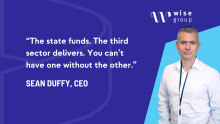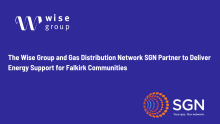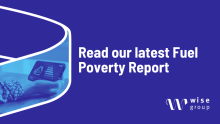 By Sean Duffy, Chief Executive Officer
By Sean Duffy, Chief Executive Officer
With six million households expected to be in fuel poverty in April 2022, the announcement that the energy price cap will be increasing by 54% will be alarming in the extreme for families across Great Britain. With the average household energy bill expected to rise by £693 in 2022/23, we are faced with a situation in which millions more households will be forced into fuel poverty, with those already living on the brink facing the horrifying prospect of choosing between heating and eating.
While we acknowledge measures announced so far, these measures fail to rise to the crisis, and fail to meet the fundamental duty of government to protect citizens from threats beyond their control. This crisis will kill people and destroy lives if not properly addressed.
The centrepiece of the current plan – a council tax rebate and £200 energy loan to be repaid over 5 years – is not targeted enough and leaves a £350 gap in people’s already embattled finances. The Warm Homes Discount must be dramatically expanded beyond the anticipated increase of one-third so that it covers all those who are in, or at risk of, fuel poverty. Any new programmes must also have built in mechanisms to safeguard families from a further increase of the energy price cap in October 2022. At the Wise Group, we witness every day how fuel poverty bleeds into every aspect of a person’s life, having a serious impact on education, employment, health and mental wellbeing. Through mentoring, we help tens of thousands of individuals make sustainable change in their relationship with energy, ensuring that individuals can reach their full potential.
Customers on pre-payment meters, who are disproportionately living in fuel poverty, are also set to be hit the hardest, with the price cap for pre-payment customers set to rise by £708. Our report into fuel poverty, Lights Off to Lights On, further established the connection between expensive pre-payment meters and fuel poverty, and revealed that many are already rationing and self-disconnecting from the energy supply. In the North East of England, as many as 42% of respondents reported rationing or self-disconnection, and as such do not register as being in need of support.
Therefore, we call on government and energy providers to work with organisations who engage with customers missing from data sets so no one is left behind.
For support, you can visit us at https://www.thewisegroup.co.uk/ or contact us at buildingbridges@thewisegroup.co.uk
















